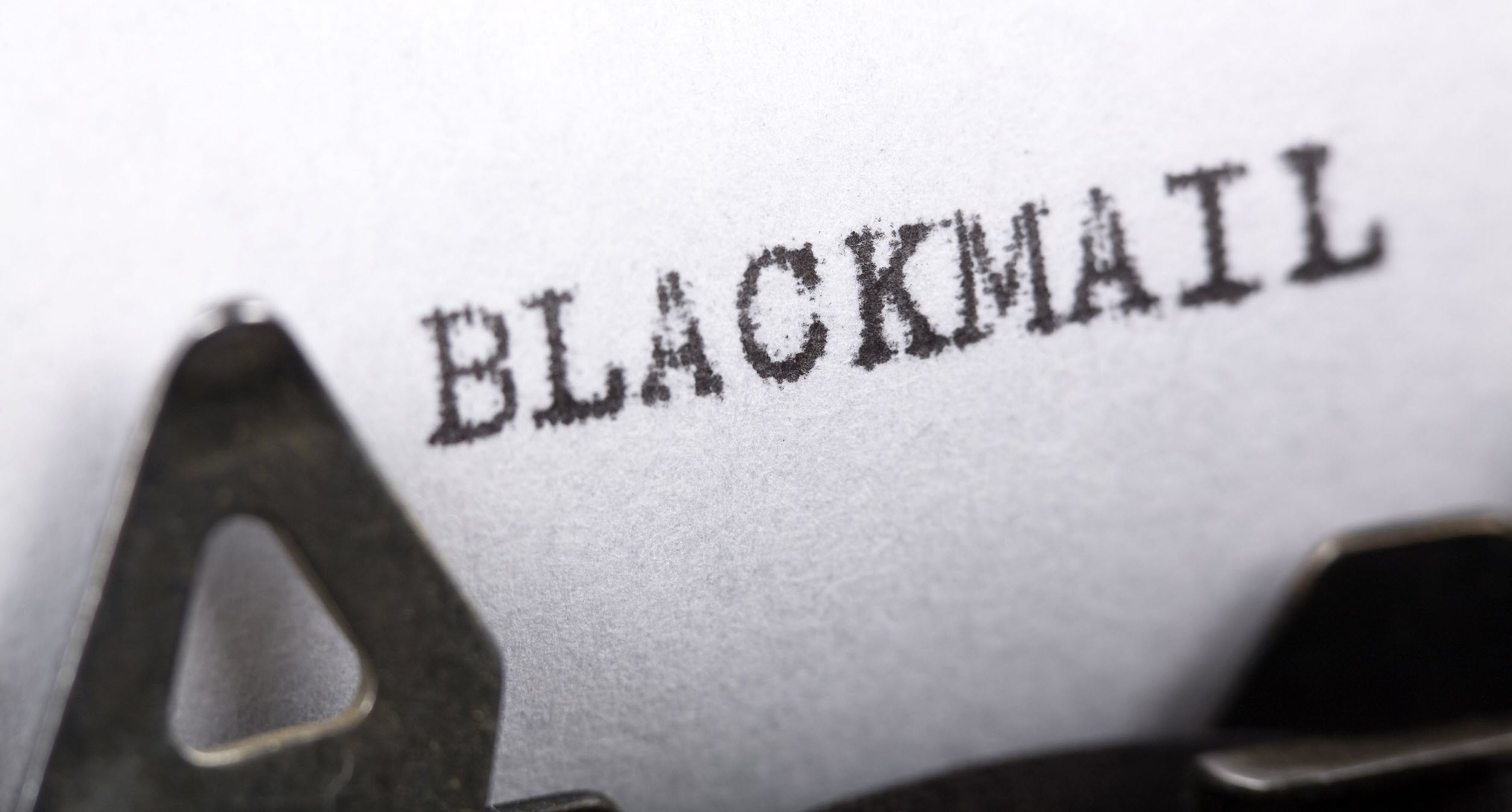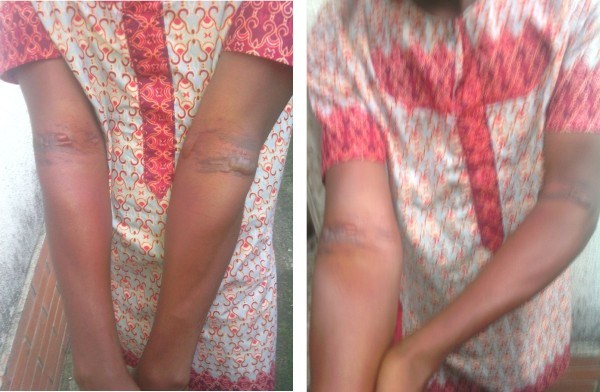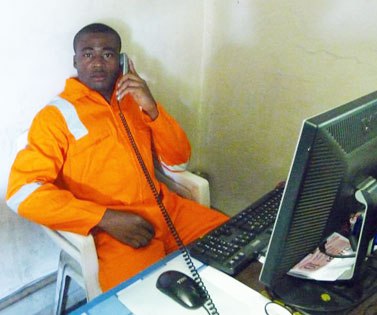11 ways to avoid anti-gay blackmail and extortion
Colin Stewart is a 45-year journalism veteran living in Southern…
By Ekene Williams
In Nigeria and other homophobic countries with laws against same-sex intimacy, LGBT people need to protect themselves against blackmailers. Here are 11 tips for defending yourself against them.

- If you are still in the closet or stand the risk of being outed to your family and friends when you are not yet comfortable with discussing your sexual orientation with them, don’t post a picture of your face online unless you are totally in the closet there as well. For safety, consider using a picture of something that represents one of your hobbies or portrays an aspect of your personality.
- Consider limiting your new online contacts to friends of your real-life friends. The LGBTIQ community is a minority group, so almost everyone knows everyone, one way or the other.
- You may want to verify with a trusted friend or a friend of that friend whether a new acquaintance is really a member of the LGBTIQ community.
- Never share your nude photos or make a video or have phone sex with someone you have not met and know you can trust.
- Insist that your first meeting be in a public space or other safe location. Or talk on Skype or in a video call.
- Remember that sharing your personal information, such as your home address or work place, can be risky. Before you do that, make sure that you have gotten to know a new acquaintance well. First, meet him at an LGBTIQ-friendly café or a safe public place.
- Let a friend know where you are meeting, or have a friend come with you. It is safer to have company on the first date if you are not comfortable and certain that you know whom you’re meeting. At the least, tell a friend where you’re going.
- Provide your emergency contact information to your trusted friend or ally.
- At that first meeting, take with you as little as possible. Do not take ATM cards, a bundle of cash, a smart phone or a laptop. Dress casually and carry only the identification documents you plan to use that day.
- In case of scandal or arrest, never confess or admit to anything. Even when there is proof against you, probably from chats or recorded calls, silence is the best bet.
- In the case of scandal, arrest or blackmail, visit a nearby human rights or LGBTIQ organization for assistance and support. Do not give in to fear or shame. Find out about organizations in your area that provide legal services for LGBTIQ persons.
Three other rules have to do with your health:
- Always insist on practicing safe sex. Always have conversations with persons you meet concerning your safety expectations.
- Get tested regularly for HIV and other STIs — at at least three times per year.
- In the case of any infection, adhere to appropriate treatment and medication. Do not resort to self-medication or hide your health status due to stigma or shame. Locate an LGBTIQ-friendly clinic in your area.
It’s especially important to follow the 11 rules for protecting yourself against blackmail and extortion because those crimes have become so frequent, and because the victims come from the LGBTIQ community.

Following Nigeria’s enactment of the Same-Sex Marriage Prohibition Act (SSMPA2014) in 2014, jobless hoodlums and scallywags devised many unscrupulous means to use it to rob, abuse and humiliate real or perceived gay persons.
The perpetrators have incorporated various mechanisms and strategies into their modus operandi. Through fake social media accounts, they lure their unsuspecting victims with promises of discreet relationships, assumed love attractions, good sexual encounters, job opportunities and benevolent gifts, amongst others. In addition to blackmail and extortion, the crimes often also extend to gang rape, sexual abuse, physical assault and armed robbery.
Gullibility, promiscuity and secrecy among LGBTIQ community members in Nigeria make it easier for homophobic criminals to prey on LGBTIQ victims.
For a country with high level of religiosity, corrupt politics, incompetent governance, ethnic inequality and intimidating legislation, it is easy for such criminality to thrive without anyone batting an eye. Due to the country’s homophobia, anti-gay criminals are hailed by the society, supported by state officials and encouraged by the silence of human rights defenders.
The general attitude is: “Gays deserve what comes to them because such sexual orientation is un-African and can’t be allowed in our country.”

In Nigeria, blackmail and extortion are a dreadful reality. They are a frightful evil that plagues the gay community. Our families and friends, the police and the judiciary cannot protect us, and many of them don’t care.
That must change.
All community-based organizations and non-governmental organizations should unite to condemn anti-LGBTIQ crimes and hold the government accountable for failing to protect the lives and properties of her citizens. The international community should decry the dangers and violence that LGBTI persons face in Nigeria.
But our safety, well-being and liberation are our responsibility, not someone else’s.
Amid Nigeria’s poverty and its high rate of unemployment, LGBTIQ persons can develop their individual talents and acquire skills that will help them avoid the temptations that can lead to exploitation and violence.
The gay community in Nigeria must shun gullibility, promiscuity, greed, self-loathing and hatred. Instead, we need to be our brother’s keepers. We need to protect our mutual interest and fight for sexual liberation.
We must come together and look out for one another. We must stand up against our oppressors and put an end to intimidation.
Ekene Williams, the author of this article, is a human rights activist in Nigeria who writes under a pseudonym.
Related articles:
- Police and Nigerian chief vow action against anti-gay blackmail (
- Man blackmailed after refusing sex with blackmailer (
- Anti-gay blackmail in Nigeria: ‘I was forced to cooperate’ (
- Anti-gay blackmail cost Nigerian singer his family, education (October 2017, 76crimes.com)
- Suspected Nigerian gay man allegedly abducted, blackmailed (June 2017, 76crimes.com)
- Ghana: Police make rare arrests in anti-gay blackmail case (April 2017, 76crimes.com)
- Nigerian LGBT website fights blackmail (November 2016, 76crimes.com)
- In Cameroon: A new victim of con artist who preys on gays (July 2016, 76crimes.com)
- How Jamaica’s Charter of Rights aids blackmailers (August 2015, 76crimes.com)
- Gay in Cameroon: Police accuse blackmail victim (December 2013, 76crimes.com)
- Gays in Cameroon, beware this blackmailer (May 2013, 76crimes.com)




